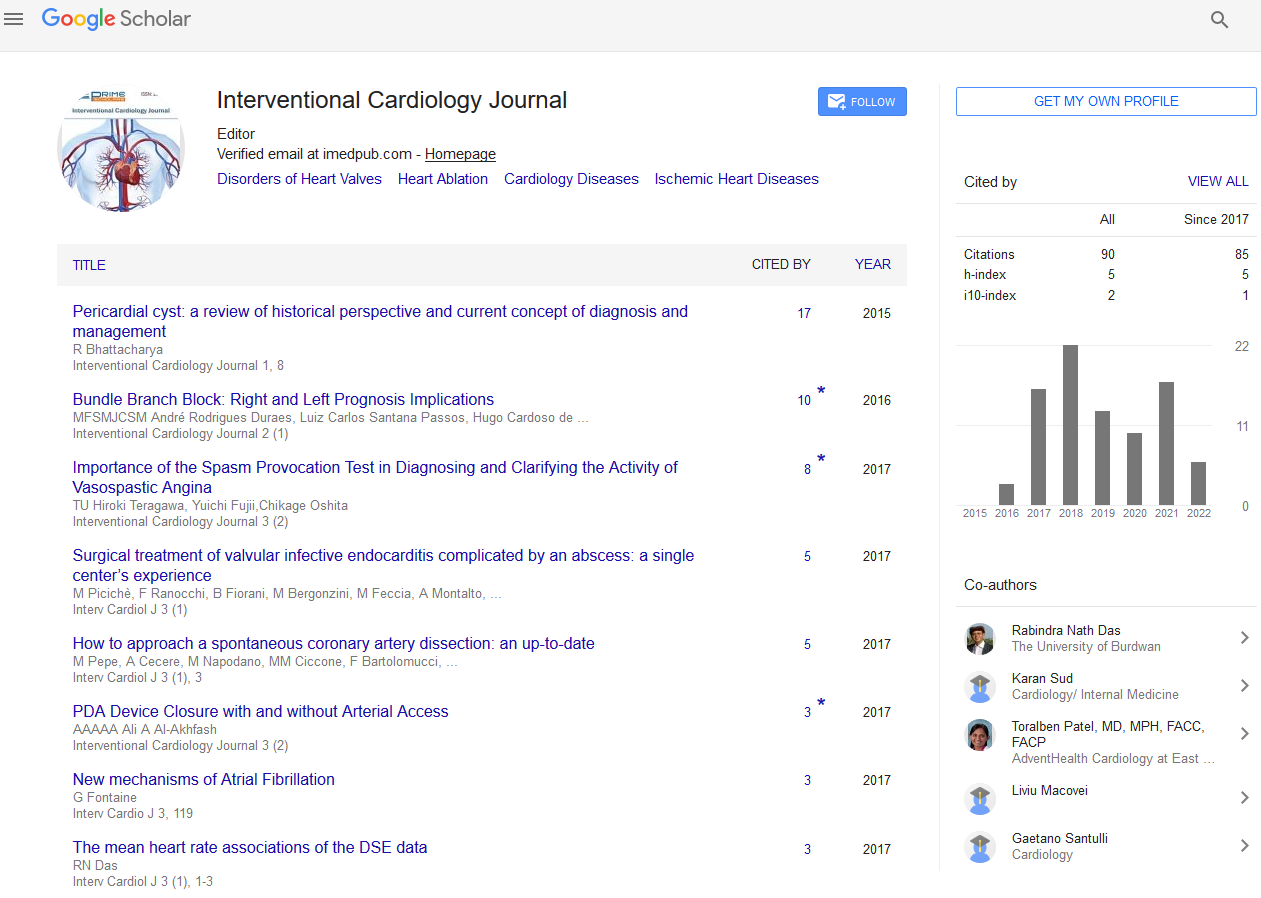Commentary - (2023) Volume 9, Issue 8
Demystifying Diabetes: Exploring Its Causes and Types
Bella Grace*
Department of Health Science, University Magna Graecia, Italy
*Correspondence:
Bella Grace,
Department of Health Science, University Magna Graecia,
Italy,
Email:
Received: 01-Aug-2023, Manuscript No. IPIC-23-18069;
Editor assigned: 03-Aug-2023, Pre QC No. IPIC-23-18069 (PQ);
Reviewed: 17-Aug-2023, QC No. IPIC-23-18069;
Revised: 22-Aug-2023, Manuscript No. IPIC-23-18069 (R);
Published:
29-Aug-2023, DOI: 10.21767/2471-8157.9.8.76
Description
Diabetes is a chronic medical condition that has reached epidemic
proportions globally. With millions of people affected,
it's essential to understand this complex disease comprehensively.
In this article, we will delve into the various aspects of
diabetes, including its causes, types, symptoms, risk factors,
diagnosis, and management. By the end, you'll have a better
understanding of this widespread condition and how to prevent
or manage it. Diabetes, often referred to as diabetes mellitus,
is a group of metabolic disorders characterized by elevated
blood sugar levels (hyperglycemia). These elevated blood
sugar levels occur due to problems with insulin, a hormone
produced by the pancreas. Insulin plays a crucial role in regulating
blood sugar by facilitating the uptake of glucose from
the bloodstream into cells, where it is used for energy. Type
1 Diabetes: This form of diabetes is autoimmune in nature.
It occurs when the body's immune system mistakenly attacks
and destroys the insulin-producing beta cells in the pancreas.
People with Type 1 diabetes rely on insulin injections or an insulin
pump to regulate their blood sugar levels. Type 2 Diabetes:
Type 2 diabetes is the most common form, accounting for
around 90% of all diabetes cases. It is primarily characterized
by insulin resistance, where the body's cells do not respond
effectively to insulin. Over time, the pancreas may also produce
less insulin. Lifestyle factors such as obesity, poor diet, and lack
of physical activity are significant contributors to Type 2 diabetes.
Gestational Diabetes: This type occurs during pregnancy
when the body cannot produce enough insulin to meet the increased
demands. It usually resolves after childbirth, but women
who develop gestational diabetes have an increased risk of
developing Type 2 diabetes later in life. Monogenic Diabetes:
This rare form of diabetes is caused by mutations in a single
gene and typically runs in families. It is often misdiagnosed as
Type 1 or Type 2 diabetes but requires specialized treatment.
Secondary Diabetes: Some medical conditions or medications
can lead to elevated blood sugar levels, causing secondary diabetes.
Treating the underlying condition or adjusting medications
can help manage this type of diabetes. Family history
can play a significant role in your risk of developing diabetes. If
you have close relatives with diabetes, you may be genetically
predisposed. Sedentary lifestyles, unhealthy diets high in sugar
and processed foods, and obesity are major contributors to
Type 2 diabetes. The risk of Type 2 diabetes increases with age,
especially after 45 years. Women who have had gestational diabetes
during pregnancy are at a higher risk of developing Type
2 diabetes. Some ethnic groups, such as African Americans,
Hispanics, Native Americans, and Asians, are more prone to
diabetes. Certain medical conditions like high blood pressure
and Polycystic Ovary Syndrome (PCOS) can increase the risk of
diabetes. Diabetes is a complex and widespread condition that
affects millions of people worldwide. Understanding its causes,
types, symptoms, and management strategies is essential for
both prevention and effective treatment. With a combination
of lifestyle changes, medication when necessary, and regular
monitoring, individuals with diabetes can lead healthy and fulfilling
lives while minimizing the risk of complications.
Acknowledgement
None.
Conflict Of Interest
The author’s declared that they have no conflict of interest.
Citation: Grace B (2023) Demystifying Diabetes: Exploring Its Causes and Types. Interv Cardiol J. 9:76.
Copyright: © 2023 Grace B. This is an open-access article distributed under the terms of the Creative Commons Attribution License, which permits unrestricted use, distribution, and reproduction in any medium, provided the original author and source are credited.

